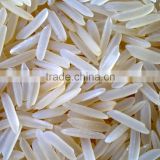Euryale ferox (also known as fox nut, foxnut, makhana, or gorgon plant) is the only species in the genus Euryale.
Euryale ferox (also known as fox nut, foxnut, makhana, or gorgon plant) is the only species in the genus Euryale. It is a flowering plant classified in the water lily family, Nymphaeaceae, although it is occasionally regarded as a distinct family Euryalaceae. Unlike other water lilies, the pollen grains of Euryale have three nuclei.
Makhana (Euryale Ferox salisb, qian shi) is a specie of NYMPHAEACEAE family. It is an aquatic produce harvested from the ditches, land depressions and ponds etc without any use of fertilizers and pesticides hence naturally it is called ORGANIC herbal food.
Euryale is an annual plant native to eastern Asia, and is found from India to Korea and Japan, as well as parts of eastern Russia. It grows in water, producing bright purple flowers. The leaves are large and round, often more than a meter (3 feet) across, with a leaf stalk attached in the center of the lower surface. The underside of the leaf is purplish, while the upper surface is green. The leaves have a quilted texture, although the stems, flowers, and leaves which float on the surface are covered in sharp prickles. Other leaves are submerged.
For geographical and climatic reason Bihar is the heaven for Makhana Production. Around 63% of the total Makhana production comes from Bihar Swetlands. Makhana is superior to dry fruits such as almonds, walnut, coconut and cashewnut in term of sugar, protein, ascorbic acid and phenol content. It is even superior to many plant and animal based diets. It has enough herbal Medicinal properties hence the American Herbal Product Association has given makhana seed a class 1 rating. The same is mentioned as under
Protein 14.52%
Carbohydrates 76.90%
Fat 0.10%
Calcium 0.02%
Phosphorous 0.90%
Kerotine 1.40mg.fe/100gms
Besides the above it has iron ,zinc, thiamine(vitaminB1) ,nicotinic acid,carotene,minerals etc.
Sweet, astringent in flavour , neutral in nature, Makhana is tropistic to the spleen and kidney channels. It can reinforce the spleen , kidney as astringent remedy. It has effect of preservating body essence and arresting chronic diarrhoea, seminal discharge, spermatorrhea, and leucorrhagia. Being antioxident, makhana helps in respiratory systems, veins, digestion , frequent urination .It helps in Cardio Protection. Makhana is very useful for women during pregnancy and post natal weaknesses.It is a superior herb highly regarded for restoring sexual vigour and youthful energy in older men. It regulates blood pressure, relieves numbness and aching near waist and knees. It is suitable for arthritis, impotence and premature aging.
Being the herbal and medicinal properties Makhana is used in various purposes. Makhana is consumed as dry fruit snacks by roasting . Being roasted & sprinkle spices on it proves a tastier hygienic and digestive health snacks. Home made roasted makhana can get rid of the junk chips and other snacks from the children’s ill habits. In 100gms Makhana has 360 k calorie.
Makhana is harvested from the stagnant wetlands. In the whole cultivation and even post harvest no fertilizers or pesticides are used. After harvesting the leaves and stems remained in the same waterbodies which proves as fertilizer for the next crop, hence it is called ORGANIC naturally. Being herb, Makhana is one of the main ingredient of herbal medicines.
NO PESTICIDE - NO SUICIDE Only ORGANIC.
Organic Food - Good for nature, good for you.
FACTS TO KNOW
1. Makhana helps in Cardiac Protection.
2. It helps in building action in dysentery, frequent urination.
3. Makhana is anti-oxident.
4. It is digestive for all age groups.
5. 25 gram makhana a day means a healthy food/diet for the whole family.
6. Loose makhana contains mycotoxin that is harmful to health.
7. Makhana regulates blood pressure, relieves numbness and aching near waist and knees.
8. It is suitable for arthritis, impotence and permature aging and recomanded for the women during pregnancy and post natal weaknesses.
The plant produces starchy white seeds, and the seeds are edible. The plant is cultivated for its seeds in lowland ponds in India. More than 96,000 hectares of Bihar, India, were set aside for cultivation of Euryale in 1990-1991. The plant does best in locations with hot, dry summers and cold winters. Seeds are collected in the late summer and early autumn, and may be eaten raw or cooked.
Evidence from archaeobotany indicates that Euryale ferox was a frequently collected wild food source during the Neolithic period in the Yangtze region, with large numbers of finds coming from the sites of Kuahuqiao, Hemudu, and Tianluoshan
Medicinal uses
In China. its edible seeds are used in traditional Chinese medicine, where they are often cooked in soups along with other ingredients, and believed to strengthen male potency and retard aging.
the water lily family, Nymphaeaceae
